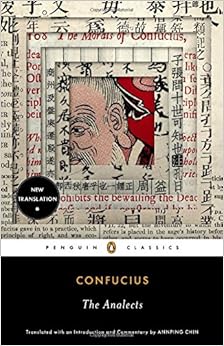Chinese Rules: Mao’s Dog, Deng’s
Cat and Five Timeless Lessons from the Front Lines in China
By Tim Clissold
This new book, from the author of
the international bestseller Mr China,
explains how to do business in China – and win.
Part adventure story, part
history lesson, part business book, Chinese
Rules chronicles Tim Clissold’s most recent exploits of doing business in China
and explains the secrets behind navigating China’s cultural and political maze.
Tim tells the story of how he
built a carbon credit business in China, found himself caught between the
world’s largest carbon emitter and the world’s richest man, and saved one of
the biggest deals in carbon credits on behalf of a London investment firm.
Backed by The Gates Foundation, he then set up a new company with Mina, his trusted
lead negotiator from the first deal, but of course, not all goes to plan when
you are playing by Chinese rules…
Tim intersperses his own personal
story with business insights and key episodes in China’s long political and
military history to uncover the five rules that anyone can use when doing
business in modern China. Together, these five rules explain how to compete
with China on its own terms. Rich in entertaining anecdotes, surreal scenes of
cultural confusion and myth-busting insights Chinese Rules is a perfect jumping off point for anyone interested
in contemporary China.
I Ching
Translated with an introduction and commentary by John Minford
With our lives changing at dizzying speed, the I Ching, or Book of Change,
is increasingly consulted, in both China and the West, for answers to
fundamental questions about the world and our place in it. The world's oldest extant
book of divination, it dates back 3,000 years to ancient shamanistic practices
involving the ritual preparation of the shoulder bones of oxen, to enable communication
with the other world. A tool for the attainment of a heightened level of
consciousness, it has recently been an influence on such Western cultural icons
as Bob Dylan, John Cage, Merce Cunningham, Philip K. Dick and Philip Pullman. Today
millions around the world turn to the I
Ching for insights on spiritual growth, business, medicine, genetics, game
theory, strategic thinking, and leadership.
This new translation, by distinguished scholar and translator John
Minford, is the result of over a decade of sustained work and a lifetime of
immersion in Chinese thought. Through his introduction and commentary, Minford
explores many dimensions of the I Ching,
not only capturing the majesty and mystery of this legendary work, but also
giving us various ways to approach it and make it our own. With its origins in prophecy and divination,
the I Ching is a system of belief,
refined over thousands of years. In both East and West, more and more people
are now reaching for it to find some stability in our times of uncertainty and
rapid change. Informed by the latest archaeological discoveries, this translation
offers the reader a potent encounter with an ancient way of seeing and
experiencing the world, and an illuminating trip on the path to self-knowledge.
John
Minford has translated numerous works from Chinese, including The Art of War, Pu Songling’s Strange Tales from a Chinese Studio, and
the last two volumes of Cao Xueqin’s eighteenth-century novel The Story of the Stone. He has taught in
China, Hong Kong, New Zealand, and Australia. He is a professor of Chinese at
the Australian National University in Canberra, Australia.
Published
by Viking, in hardback priced in local currencies.
Also of note: the October publication, by Penguin, of The Analects of Confucius in an all-new translation by Yale historian Annping Chin. Paperback, priced in local currencies.





